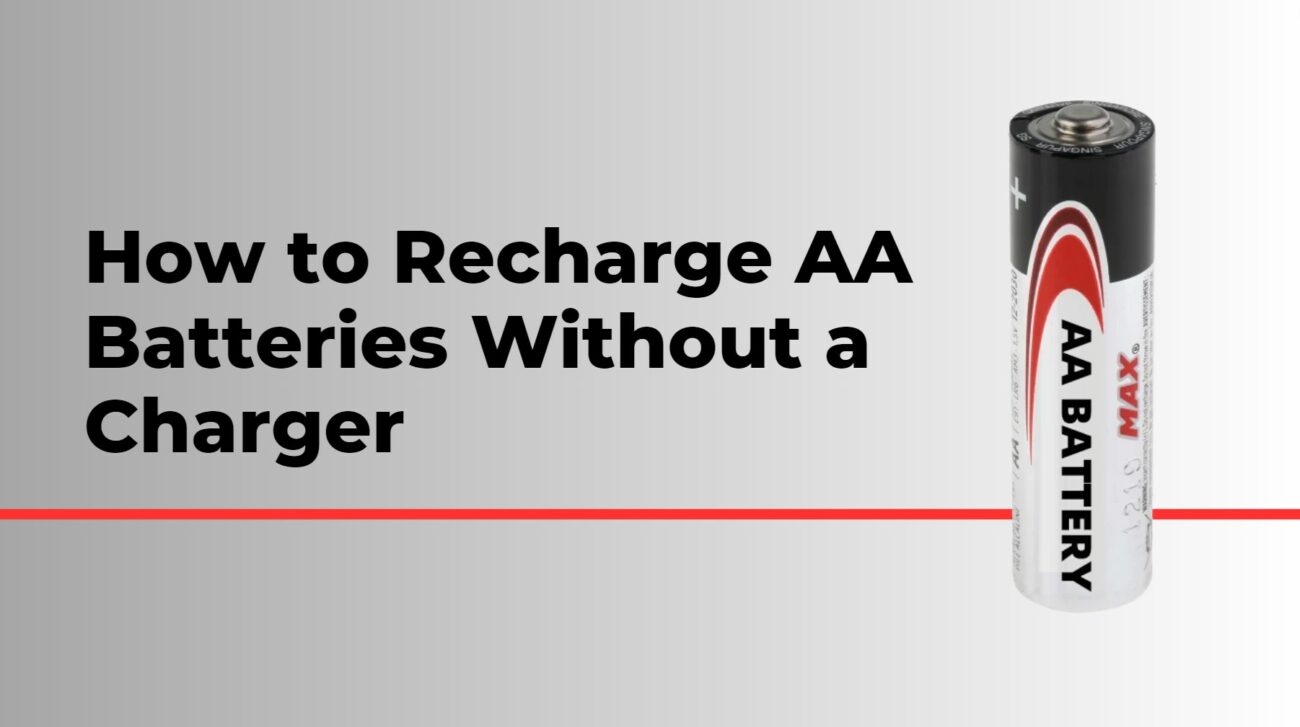AAA batteries can fail due to several reasons, including:
- Natural Discharge: Batteries lose charge over time, even when not in use.
- Over-Discharge: Using batteries until they are completely drained can lead to irreversible damage.
- Temperature Extremes: Exposure to high heat or extreme cold can affect battery performance and lifespan.
How Can You Revive Dead AAA Batteries?
You can revive dead AAA batteries using methods like soaking them in lemon juice for an hour, warming them in your hands, or using a metal barbecue clamp to connect them with a charged battery. These techniques may help restore some functionality temporarily, allowing for limited use.
Reviving dead AAA batteries is possible through several methods, though success may vary:
- Recharging: If the battery is rechargeable (NiMH or Li-ion), use a compatible charger.
- Freezing Method: Place non-rechargeable alkaline batteries in the freezer for a few hours, then let them thaw to potentially restore some charge.
- Vinegar Solution: For corroded contacts, soak the terminals in a vinegar solution to clean them before attempting to recharge.
What Are the Best Methods for Recharging AAA Batteries?
The best methods for recharging AAA batteries include using a dedicated smart charger designed for NiMH or NiCd rechargeable batteries. Ensure the charger is compatible with the battery type. Avoid overcharging, as this can damage the battery and reduce its lifespan.
For rechargeable AAA batteries, follow these steps:
- Use a Smart Charger: Smart chargers can detect when a battery is fully charged and prevent overcharging.
- Charge at Room Temperature: Avoid charging in extreme temperatures to maintain battery health.
- Cycle Charging: Occasionally fully discharge and then recharge your batteries to help recalibrate their capacity.
Why Should You Avoid Certain Revival Methods?
Certain revival methods, such as applying excessive voltage or using inappropriate substances, can be dangerous. They may cause leakage, overheating, or even explosions. It’s essential to use safe techniques that minimize risk to both the user and the battery.
Some revival methods can be risky or ineffective:
- Boiling Water Method: This can damage the battery casing and lead to leaks or explosions.
- Jump Starting with Another Battery: This may cause overheating and further damage the battery.
How Can You Use AA Batteries Instead of AAA?
You can use AA batteries instead of AAA in devices designed for interchangeable battery sizes by using an adapter or spacer to fit the larger size. However, ensure that the device can handle the higher voltage and capacity without damage.
If you need to use AA batteries in place of AAA, consider these options:
- Battery Adapters: Purchase adapters that allow AA batteries to fit in AAA slots.
- Stacking Method: Use tape or other materials to stack AA batteries securely in devices designed for AAA batteries.
What Are the Risks of Reviving Dead Batteries?
Reviving dead batteries carries risks such as leakage, explosion, or fire due to internal damage or improper handling. Additionally, these methods may not restore full functionality and could lead to further degradation of the battery’s health over time.
Reviving dead batteries carries certain risks:
- Leakage: Old or damaged batteries may leak corrosive materials.
- Fire Hazard: Improper handling during revival attempts can lead to overheating and fires.
- Reduced Performance: Even if revived, the battery may not hold charge effectively.
How Can You Properly Dispose of Dead Batteries?
To properly dispose of dead batteries, take them to a designated recycling center or a retailer that offers battery recycling programs. Never throw them in regular trash, as they contain hazardous materials that can harm the environment. Always follow local regulations for battery disposal.
Proper disposal is crucial for environmental safety:
- Recycling Programs: Many retailers offer recycling programs for used batteries.
- Hazardous Waste Facilities: Check local regulations for hazardous waste disposal options.
Industrial News
Recent advancements in battery technology focus on sustainability and efficiency. Companies are developing new recycling methods that recover valuable materials from dead batteries, reducing environmental impact. Innovations in solid-state battery technology also promise longer life spans and improved performance, making them a viable alternative for both consumer electronics and electric vehicles.
Redway Expert Insights
“Reviving dead batteries can be tempting, but it’s essential to understand the risks involved,” says John Redway, an energy expert. “Using proper techniques and knowing when to recycle instead of revive will ultimately save you time and ensure safety.”
FAQ Section
Can all AAA batteries be revived?
Not all AAA batteries can be revived; only rechargeable types (like NiMH) have a chance of being restored.
How long can I expect revived batteries to last?
Revived batteries may only last a fraction of their original lifespan and might not hold charge effectively.
Is it safe to recharge non-rechargeable alkaline batteries?
No, recharging non-rechargeable alkaline batteries can be dangerous and is not recommended.
What should I do if my revived battery leaks?
Immediately dispose of it according to local hazardous waste guidelines and clean any residue safely.
Know more:
Which AAA Battery Is Better: Energizer or Duracell?
How to Understand the Differences Between AAA and 14500 Batteries?
Understanding the Differences Between 14500, AA, and AAA Batteries
How to Revive Dead AAA Batteries: Methods, Recharging, and Using AA Batteries
What Are the Differences Between 14500, AA, and AAA Batteries?
What Are the Key Differences Between AAA and 14500 Batteries?
What Are the Best D Batteries for Your Needs?




